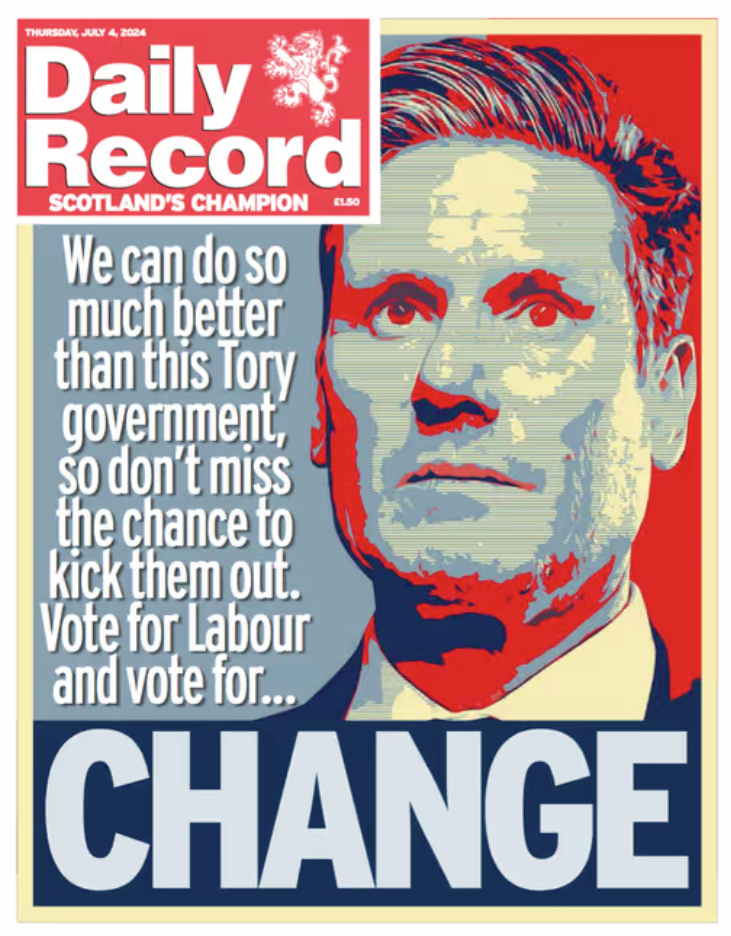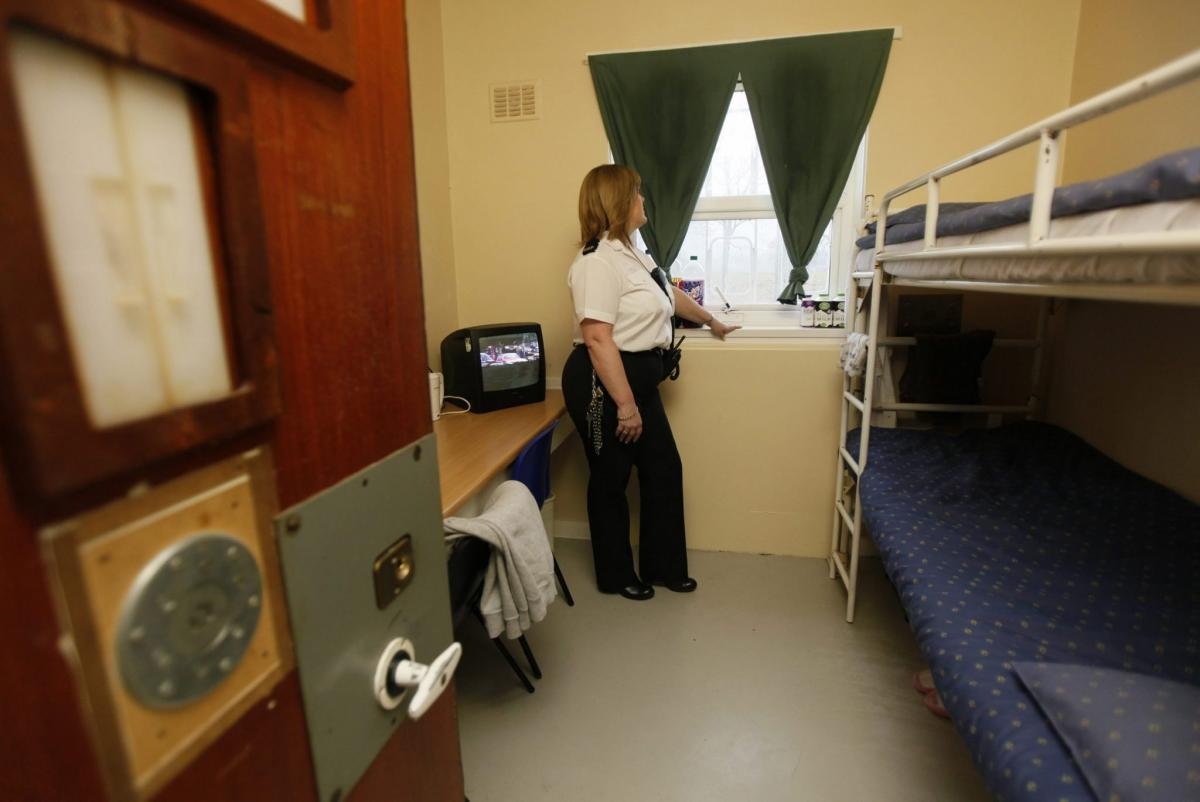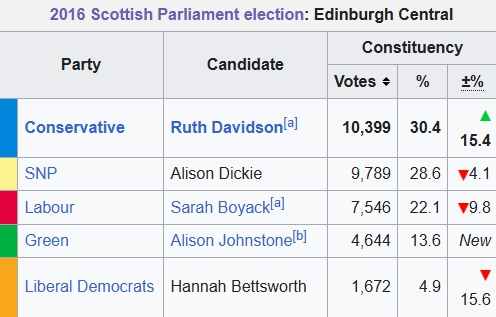Determinants of Independence Constitution
Part seven in the excellent ten part series from Professor Alf. Baird. It has already changed the debate opening people’s eyes up to the need for a fairer franchise if we want a chance to win any referendum. Here it goes further and argues any referendum is unnecessary. 7 CONSTITUTION. The UK union alliance between Scotland andContinue reading "Determinants of Independence Constitution"

Part seven in the excellent ten part series from Professor Alf. Baird. It has already changed the debate opening people’s eyes up to the need for a fairer franchise if we want a chance to win any referendum. Here it goes further and argues any referendum is unnecessary.
7 CONSTITUTION.
The UK union alliance between Scotland and England was constituted by treaty, the Treaty of Union. Scotland’s joint UK parliament with England was created and hence constituted in 1707 by agreement of a majority of Scotland’s national representatives acting on behalf of Scotland and the Scottish people. The Scots are a sovereign people, which implies that Scottish sovereignty rests at any time with the Scottish people and hence in turn with their national elected representatives; it is the latter who hold political power through exercising sovereignty on behalf of the Scottish people and nation, much as they did in 1707.
A treaty can never be cast in stone for eternity for the simple reason that its relevance and import is inevitably bound by time and circumstance. Any treaty will only ever be upheld insofar as it serves the national interest of the signatory party.There is here the age-old argument of alliance determinism which assumes both an effective international rule of law and honourable alliance partners; however, ‘experts in international affairs would count those as among the most naïve hypotheses imaginable’ (Hamilton and Herwig, 2004).
It is clear from the European Court of Justice Brexit decision and from numerous practical examples throughout history that a signatory party to a treaty may unilaterally withdraw from its treaty-based agreements and obligations. Scotland is and remains a signatory party to the treaty that created Scotland’s joint parliament with England, hence Scotland must be able to lawfully withdraw from that agreement.
The Treaty of Union represents the founding constitution of the UK alliance. Neither Scotland nor England, as constitutional legal entities and kingdoms, were dissolved;only their respective parliamentary legislatures were dissolved and a new joint legislature created to act for both, with each country’s distinct legal systems and other national institutions being retained. Westminster and Holyrood legislatures have both acknowledged the Claim of Right, that Scottish sovereignty rests with Scotland’s people. This reflects the reality of the situation in that, as with any treaty-based alliance, the Treaty of Union may be unilaterally revoked by either of its sovereign signatory parties.
If Scots were judged incapable of with-drawing from their own treaty-based alliance, despite being a sovereign signatory party to it, this therefore implies that Scotland is deemed merely a territory and hence a colony of England, given the latter’s political domination over Scotland by virtue of its numerical preponderance of MP’s within the joint Westminster legislature. However, this perspective ignores the fact of Scotland being a sovereign signatory party to a treaty-based alliance.
Whilst politically, Scotland is demonstrably regarded by the UK joint legislature and its governing administration as little more than a UK region, and exhibits many of the features of colonialism, constitutionally and legally Scotland is anything but. The ECJ stated that revoking and ending a treaty is a decision unilateral for the country concerned and is thus a matter for the elected representatives of the relevant country. As Scotland is a signatory party nation to the Treaty of Union this means that the Scottish people, through their elected national representatives, must have the right to lawfully revoke that treaty. Indeed, Scotland’s only apparent veto over the UK union is to end it; that is, by withdrawing from it.
Historically, the election in Scotland of unionist supporting majorities of MP’s and MSP’s ensured and maintained the UK alliance status quo. UK political leaders, however, always acknowledged the right of any nationalist majority of Scotland’s national elected representatives to begin negotiations for Scotland’s withdrawal from the UK alliance. It is only in recent years, since nationalist majorities in favour of independence have been repeatedly returned by Scotland’s electorate that the UK legislature and its administration has sought to confuse the question of Scottish sovereignty, through various measures, in order to prevent or delay Scotland’s withdrawal from the UK alliance.
A ‘sovereign people’ refers to a political body comprised of citizens and qualified electors who possess sovereign power, which they exercise through their chosen representatives. Here, sovereign means having the highest power, in effect being independent insofar as the ultimate decision-making authority of the sovereign people is concerned. In this sense, as the Scottish people are sovereign, this means they are to all intents and purposes already independent if they wish to be so; in the context of the UK treaty-based alliance the Scots are merely sharing their indefeasible sovereignty with the people of another nation within a treaty-based alliance. When any such treaty-based alliance is no longer deemed in the national interest of a sovereign signatory party then it will be ended, and that is the reality of the matter.
Scotland’s joint UK parliament and governing administration is not a signatory party to the Treaty of Union. The treaty signatory parties – that is the nations of England and Scotland – are therefore principals and thus superior parties in the treaty-based alliance; they are not subordinates of the UK parliament and/or its administrative governing apparatus, the latter merely a creation of the treaty. In this regard the UK is a treaty-based alliance agreement that may be ended unilaterally and lawfully by either superior signatory party nation, as is the case with any international treaty-based arrangement.
Sovereignty of Scotland’s people at any given time is exercised politically by Scotland’s elected national representatives. As it is they who represent Scotland’s sovereign people and the Scottish nation, and hence represent a signatory party to the treaty, it is they who must exercise Scottish sovereignty; this means it is Scotland’s elected national representatives who are required to revoke the treaty in order to withdraw Scotland from the UK union alliance, in the same way it was brought about.
It matters less the grounds for withdrawal, of which there are arguably many.Breaches of the treaty continue to occur, the latest being the Northern Ireland ‘backstop’ or special customs arrangement as part of the UK’s Brexit ‘deal’, which contravenes the trade element of the union treaty. As an alliance partner more generally, England has seldom behaved in an honourable manner towards Scotland;there are numerous exploitative and oppressive features and therefore imperial and colonial legacies of the UK alliance that more Scots are now becoming aware of, not least Scotland’s enforced removal from the EU. This reflects an enduring impetus for Scotland to withdraw from an alliance that is not, and arguably never was, in its national interest.
A second Scottish independence referendum, now repeatedly mandated for in several successive national elections won by the SNP in Scotland, has been refused by the UK administration, the latter assuming it has the right to ignore the wishes of Scotland’s sovereign people. However, the fact of both the treaty and Scottish sovereignty means that a referendum is an unnecessary process, not least because a sovereign people always retain the right to determine their own future. What Scots seeking independence require is merely the withdrawal of their country from a treaty-based alliance; this is a matter which is not in the gift or subject to a decision or interference of any party other than the Scots themselves, as a sovereign people.Application of an irregular (i.e. local government) voting franchise based on residence for national elections and referendums in Scotland, which invites and permits significant numbers of non-nationals to vote and influence the outcome, results in a clear dissipation and hence loss of Scottish sovereignty.
It is also important to note that: “As a matter of law, a referendum is not a required part of the process of becoming independent” (McCorkindale and McHarg 2020).This, added to the fact that Scots are already a sovereign people and nation merely seeking to withdraw from their own treaty-based alliance, suggests the ‘need’ for a referendum to be little more than a deception. The imposition of an irregular voting franchise simply adds to the deceit. In this context (and in numerous cases of decolonization-independence generally), the usurper, as may be expected, wastes little opportunity to remove a peoples’ sovereignty from them.
Dependence solely on a referendum to facilitate Scotland’s withdrawal from the UK treaty-based alliance is not only unnecessary, it also adds risks for the Scottish people in relation to the protection of their sovereignty. There are clearly many ways various actors from outside Scotland (primarily from England) are permitted to interfere in and hence influence any Scottish independence referendum process and result, which goes against UN guidelines on self-determination and adds unnecessary risks and uncertainty.
A referendum is assumed to be democratic, however, so is the outcome of national elections. In both respects an irregular franchise imposed on Scotland by the UK governing administration and its devolved entity must also be considered, as this arguably represents a disregard for the imperative to protect Scottish national sovereignty. Here the constitutional and legal reality is arguably what matters more than contemporary definitions or notions of what democracy may or may not be. Democracy was, of course, of a rather different order in 1707 when Scotland’s privileged nobility and other elites signed up to the UK union alliance, influenced as they were via a mix of bribery and coercion; on that basis alone any similar treaty-based alliance entered into today would inevitably be called into question.
It may (or may not) be instructive for Scottish nationalists to seek the opinion of a Scottish court on the constitutional and legal reality of the Treaty of Union, and particularly on the question of the majority of Scotland’s elected national representatives’ right to exercise Scottish sovereignty and to unilaterally withdraw Scotland from the UK union alliance. That is assuming Scotland’s national representatives remain uncertain of their sovereign ‘powers’, as currently appears to be the case.
In 2019, some 81 per cent of Scotland’s elected MP’s claimed to support independence, compared with just 61 per cent who voted to pass the Act of Union on 16th January 1707. In 2015 the SNP won 56 of Scotland’s 59 seats (95 per cent) yet these supposed Scottish nationalists still turned up at Westminster, preferring to give their continued consent to the UK union alliance rather than exercising and asserting Scottish sovereignty, as they would appear to be lawfully entitled to do, and as the voters in Scotland gave them the power to do. There have now been six successive Scotland parliamentary majorities elected in favour of independence, three at Westminster and three at Holyrood; yet still Scotland’s national representatives refuse to exercise and assert that sovereign power and withdraw Scotland from the UK treaty-based alliance. The legal authority necessary to withdraw from Scotland’s joint UK parliament must arguably rest in the way it was constituted; that is, by a majority of Scotland’s representatives who hold and may exercise Scottish sovereignty.
Courts tend not to dwell on hypothetical matters, which implies that a majority of Scotland’s national representatives would first need to exercise and assert sovereignty and give notice of their intention to withdraw Scotland from the UK alliance. Assuming there is any legal objection to such a withdrawal, the courts’ maybe asked to give an opinion on the question of whether or not a majority of Scotland’s national elected representatives may lawfully exercise national sovereignty in this way. If the court decides that Scotland’s national representativesmay lawfully assert sovereignty then Scotland is de jure independent, whereas a contrary opinion leaves Scotland within the UK.
The difficulty arises for a Scottish court if it were to decide that a majority of Scotland’s national representatives could not lawfully exercise sovereignty in regard to Scotland’s withdrawal from the treaty-based alliance. A court would need to find good reasons on which to base such an opinion, as this would imply the Scots are not considered a sovereign people. This would then raise the question as to who, if not the Scots, holds Scottish sovereignty – is it really a Westminster parliament dominated by England’s MP’s? This would further imply the Claim of Right and the treaty itself to be more or less irrelevant.
Such an opinion may seem improbable given that the very same treaty is precisely what enshrines and safeguards the continuing status, privilege and existence of the Scottish legal system, including Scotland’s highest courts, the latter still sitting in the auld Scots parliament building itself. There may of course be the view, given the court’s longstanding privileges and protections via the treaty, and the rather colonial nature of Scotland’s institutions more generally, that perhaps such aspects and influences may call into question the courts’ impartiality in the matter. In which case, and assuming a negative outcome, the correct path may then be to seek the opinion of the international courts.
Moreover, if any court considered it unlawful for Scotland’s elected national representatives to withdraw Scotland from its own treaty-based alliance this also renders the ‘union’ as little more than a charade, with Scotland a colony, held firmly under the political control of another sovereign power, namely England by virtue of its majority of MP’s at Westminster. This would in turn mean there are no ‘unionists’as such, but rather ‘colonialists’. Colonialism, after all, relates to the forceful removal of a peoples’ sovereignty by the usurper, i.e. the coloniser, which would appear to reflect such an outcome. How a revelation of this nature might sit with ‘proud Scots’unionists who have aye considered Scotland a participant in a ‘union of equals’ is difficult to say.
Perhaps the important issue here is that peoples in self-determination conflict cannot necessarily expect, far less depend on any court, domestic or international, to deliver their liberation from oppression. The people themselves must find the best way that suits them, notwithstanding that decolonization history well illustrates the difficulties involved, colonialism inevitably involving an intransigent and belligerent oppressor.
Constitutionally, in terms of sovereignty, and given that the UK is a treaty-based Alliance , Scotland is a nation that should be able to re-establish its own parliamentary legislature and hence independent ‘State’ status at any time. Sovereignty means that a people are already de facto independent as and when they wish to be; sovereignty of a people is indefeasible.
Six successive Scotland parliamentary majorities have now been expressed in favour of Scotland’s withdrawal from the UK alliance. This means the Scottish people have already spoken several times on the matter, each time giving sovereign power to their national representatives to withdraw Scotland from the UK. It is Scotland’s elected national representatives who have yet to move and deliver the required withdrawal by exercising Scottish sovereignty, preferring to delay and prevaricate over superfluous questions and dubious needless referendums, which also runs the risk of a permanent loss of sovereignty.
For an explanation of this behaviour, postcolonial theory points in the direction of the dominant national party opting for what Frantz Fanon termed an ‘accommodation with colonialism’, and to Albert Memmi’s notion of the independence leadership’s inevitable petrification when facing the oppressor at the vital constitutional moment;here the national party elite lacks the courage to make the moves necessary to declare and negotiate independence in line with the wishes and electoral mandate of a sovereign people, and instead manoeuvres the independence movement ‘up a blind alley’.
The reality of the matter appears to be that Scotland’s sovereign people are being undermined primarily by those whom they have elected as their national representatives, and who continue to fail to exercise sovereign power in order to withdraw Scotland from its treaty-based UK alliance.
MY COMMENTS
Once again Alf highlights how the process to achieve Scottish Independence has become increasingly confused and complicated in recent years. While it is perhaps understandable why England would seek to do this it is perhaps a more important question to ask why the SNP Government have not only been happy to go along with this but indeed, voluntarily, add on their own endorsements and expansions to this intentional confusion. Alf’s earlier articles have highlighted the quite common occurrence where a colonial administration becomes comfortable with its limited power and seeks to maintain that comfort rather than risk all to achieve the original goal that gifted them that limited power in the first place. It is not in the slightest difficult to build a case against Nicola Sturgeon of being guilty of such a betrayal. It seems to me that the task ahead is not just to educate the Scottish people about these options but to start with those we have elected to be Scotland’s representatives and who we tasked with delivering Independence. There is much they could learn from this that could greatly simply the entire process. So the question is “who wants to become Scotland’s heroes?”
Please read this article but above all please retweet and share. The more people who have this knowledge the more likely we will achieve Independence. Thanks!
I am, as always
Yours. For Scotland
BEAT THE CENSORS
Unfortunately a number of pro Indy sites have turned out to be merely pro SNP sites and have blocked a number of bloggers, including myself. We have managed to frustrate these efforts to close us down through our readers sharing our articles and building our audience. In addition many have taken out free direct subscriptions. I very much appreciate this support.
Free Subscriptions
Are available on the Home and Blog pages of this website. By taking out a subscription you will receive notification of all future posts. You will be most welcome.
What's Your Reaction?










































